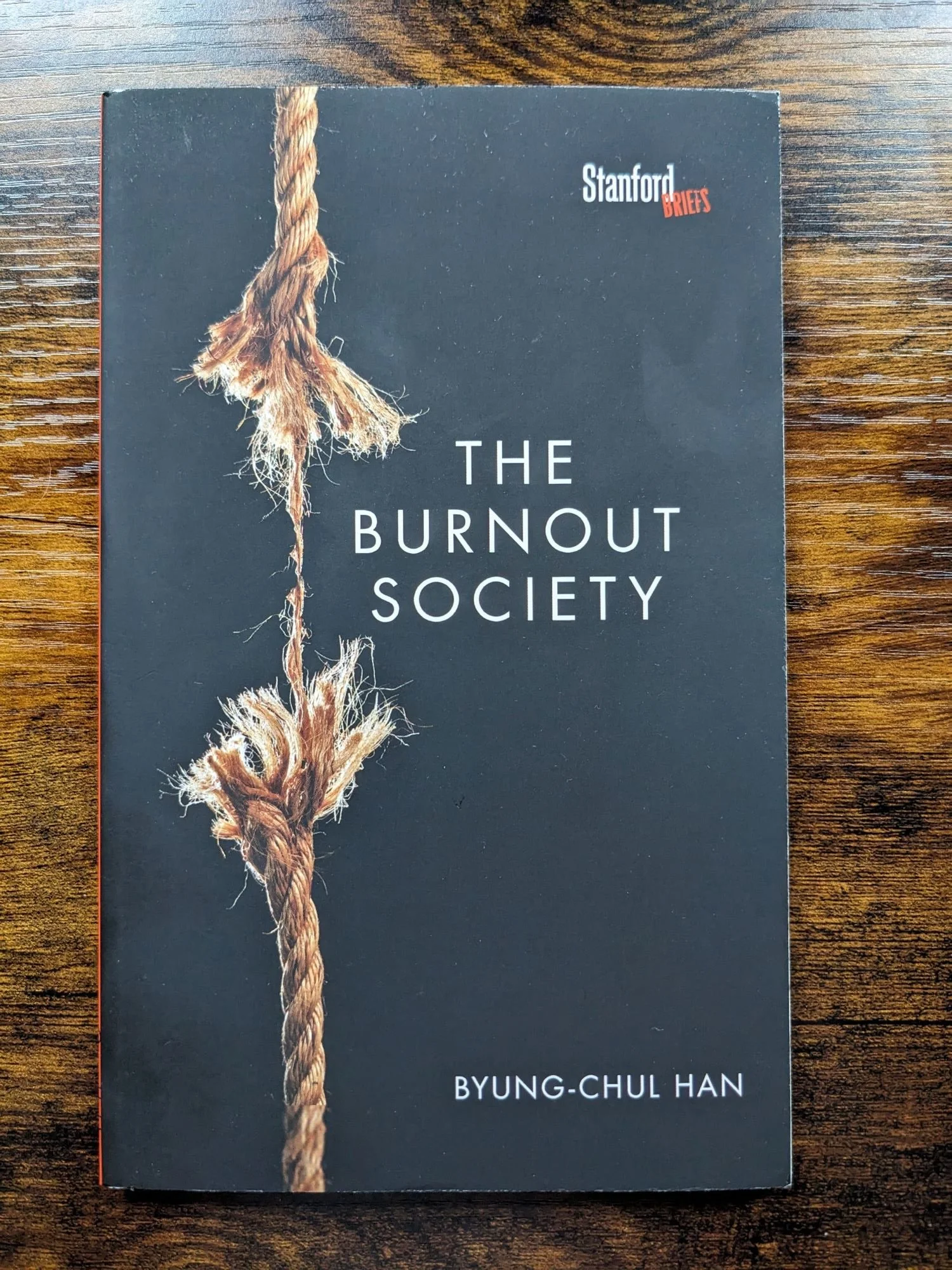In Praise of Boredom
Byung-Chul Han's "The Burnout Society"
I’ve recently found a favorite writer, a philosopher named Byung-Chul Han.
I don’t recall when or how I came across his work, but it was likely the title of his first book, The Burnout Society that grabbed my attention. One of the roles I expect of philosophy is help seeing things differently. When it comes to something like profound exhaustion and burnout, I am looking for an understanding more accurate or profound than being “really, really” tired.
I’ve referenced Han’s work in a post recently. I wrote about my routine in one letter and then questioned it in the following one.
All thought takes deep work and needs time for comprehension. I am working through the ideas I grabbed in the four books of his I’ve recently read, and I want to share thoughts and strands of my understanding here.
I return to the beginning, his first book, The Burnout Society as an announcement of his project and my own first step into the impressive catalog of his work. Candidly, I find writers like this inspiring. Diving into these ideas offers a sense of motivation to me. That is: this is something toward my personal future, my own path.
In reviewing this book, I found three quotes that I think collect a good sense of his work. Interestingly, I think they are best understood in reverse order.
Consider
“Today we live in a world that is very poor in interruption; ‘betweens’ and ‘between-times’ are lacking. Acceleration is abolishing all intervals… Different kinds of action and activity exist. Activity that follows an unthinking, mechanical course is poor in interruption. Machines cannot pause. Despite its enormous capacity for calculation, the computer is stupid insofar as it lacks the ability to delay.” (22)
“Life has never been as fleeting as it is today. Not just human life, but the world in general is becoming radically fleeting. Nothing promises duration or substance” (18).
“If sleep represents the high point of bodily relaxation, deep boredom is the peak of mental relaxation” (13).
I am surely not the only one, but I certainly related to his claim that life never has been as fleeting as it is today. Life simply feels exceptionally rapid and chronically brief. He has own formula for deriving this statement, but for me, it is enough to use it as a relatable assumption. Life is fast; today is faster.
In his mind, it seems to be because there is no interval or “in between time” in transition to things. Life is an over-active state of being today without the ability to pause. This inability to pause and create (or honor) distinct times seems to erase duration. Nothing lasts. Nothing endures. We are already onto the next thing.
As I comprehend this, I would identify a certain pressure to make things count double. I think of the evidently essential need to have a side hustle outside of a full-time job. Such side hustles are often built off of one’s hobbies, making it such that the thing you would use to relax is now rewritten into a system of business and production. A sense of rest is eliminated in the same way how social media influencers burnout. Using their “off time” to “make content” transforms their everyday into an opportunity to waste if they do not translate the everyday into content. This fills every moment with risk. If you’re not at least making videos of yourself running around and having your little life or leveraging everything for content, you’re wasting your time and missing a moment to build the newly required digital presence for life today.
It hurts thinking of this.
This is where the last quote makes the most sense. If life is fast and today is faster, if there is only acceleration and only burnout, how does one rest?
Han makes the call for profound boredom. His formula for this is inescapable: sleep is to the body as boredom is for the mind.
I want to protect myself from burnout. After reading this book, I am thoughtful of two things:
Delay doing things as a deliberate action, allowing focus on one thing at a time as much as possible
Invite and allow boredom
In fact, I see the success of my writing career depending on how well I can be bored. I need to allow moments for myself to think and connect and slack around, if I am to continue generating ideas that I think are interesting enough to write about.
More soon,
Trevor
P.S. I’m back from Riyadh. Reflections on that time will follow after I work through some August-thoughts.
Now-reading affiliate links:
